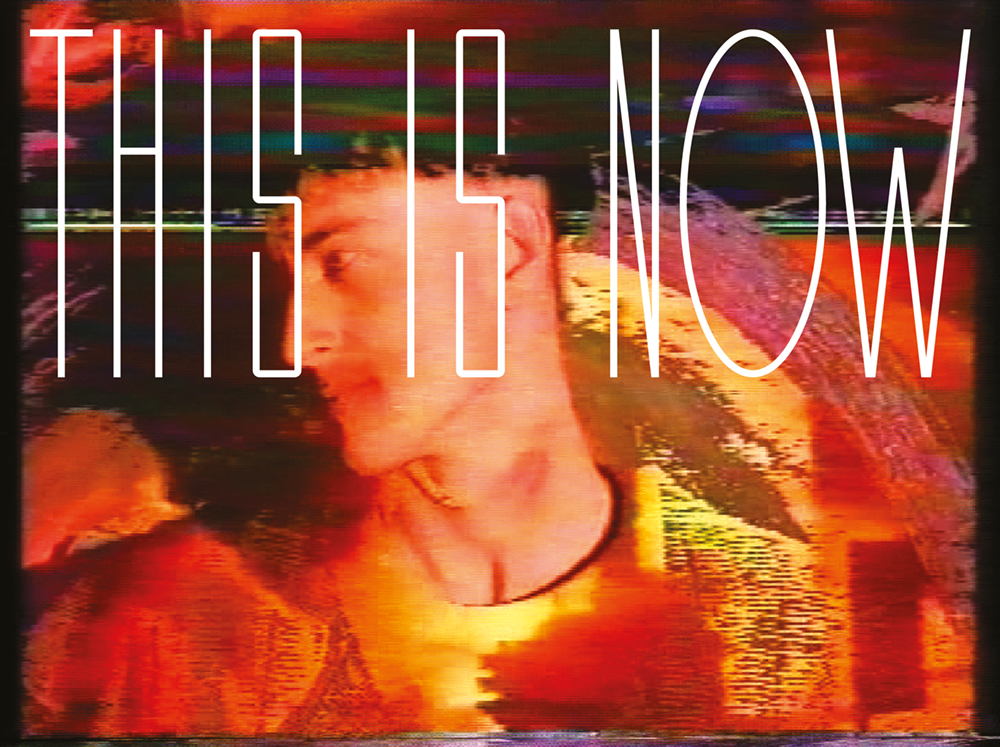This Is Now: Film and Video After Punk
6 – 20 May 2016
We are delighted to present the Birmingham premiere of the full touring programme ‘This Is Now: Film and Video After Punk’, in partnership with LUX and the BFI National Archive. Works include rare Super8 and 16mm films – unseen for a generation – digitally remastered by the BFI National Archive.
Please note: Some of the screening programmes contain explicit and potentially sensitive material that may not be suitable for younger audiences. Guidelines are noted alongside each programme.
*All screenings take place at Vivid Projects (VP in listing), 16 Minerva Works unless otherwise indicated.
Home Taping (18)
6 May, 7.30pm VP | 19 May, 7pm at *BCU Parkside (part of Video Killed The Radio Star? event)
The mainstream media was treated like a giant library to be plundered for provocative play and subversion in the early 1980s. Whether filming their TV screen with a Super 8 camera or deftly copying tape-to-tape, artists grabbed and juxtaposed disparate material to disrupt the dominant ideologies of the age and create new visual music. The programme includes notable examples of the Scratch Video phenomenon.
Cerith Wyn Evans, The Attitude Assumed: Still Life With Still Born, 1980, 19 min
Jill Westwood, Skinheads and Roses, 1983, 7 min
Jeffrey Hinton, Pop Dolphin, c.1983, 23 min
George Barber, Tilt, 1984, 6 min
George Barber, Branson, 1983, 2 min
Duvet Brothers, Blue Monday, 1984, 4 min
Gorilla Tapes, The Commander in Chief, 1984, 4 min
George Barber & George Snow, Art of Noise: Legs, 1985, 6 min
Cordelia Swann, Passion Tryptych, 1982, 4 min
Performing the Self (PG)
6 May, 6pm at *Grand Union, 19 Minerva Works | 19 May, 4pm VP
New ways of thinking about identity, the self and the body were all part of punk’s powerful legacy. This unlikely cocktail of visionary experimental films and bright, brash pop videos shows how visual culture changed radically at the start of the 1980s. Genre boundaries became blurred and the use of masks and make-up challenged the conventions of identity construction and representation – often to the sound of a catchy electronic melody.
Cerith Wyn Evans, Still Life With Phrenology Head, 1979, 14 min
Steve Barron, Human League: Don’t You Want Me, 1981, 4 min
John Scarlett-Davis, Chat Rap, 1983, 15 min
Mike Mansfield & Adam Ant, Adam Ant: Stand and Deliver, 1981, 3 min
Mike Mansfield & Adam Ant, Adam Ant: Prince Charming, 1981, 3 min
John Maybury, The Modern Image, 1978, 13 min
John Maybury, Solitude, 1981, 13 min
Grayson Perry & Jennifer Binnie, Bungalow Depression, 1981, 4 min
The Neo-Naturists, The Private View, 1981, 7 min
Just Images (18)
12 May, 2pm
The moral, political and symbolic integrity of the image itself is interrogated and overturned in these richly textured films. John Maybury casts Siouxsie Sioux and fashion designer David Holah in one of the singularly most stunning and ambitious Super 8 works of the era, the existential genderfuck Court of Miracles. Young filmmakers bring on the post-modern age.
John Maybury, The Court of Miracles, 1982, 44 min
Vanda Carter, Glory Boys? , 1983, 4 min
Isaac Julien, Territories, 1984, 24 min
Cerith Wyn Evans & John Maybury, Psychic TV: Unclean, 1984, 9 min
Video Killed the Radio Star (12)
7 May, 2pm | 19 May, 2pm VP
Early independent video releases were the revolutionary, DIY antidote to a television system that was only just gearing up to a fourth channel. They bypassed censorship and provided a platform to the marginalised and unsanctioned. This eclectic selection includes a very rare John Smith title and punchy, stuttering Scratch Video works by The Duvet Brothers, Kim Flitcroft & Sandra Goldbacher, Gorilla Tapes and George Barber.
John Smith, Echo and the Bunnymen: Shine So Hard, 1981, 32 min
The Miners’ Campaign Tapes: The Lie Machine, 1984, 16 min
The Greatest Hits of Scratch Video Volume 2, 1984, 28 min
Before and After Science (15)
13 May, 2pm | 20 May, 2pm VP
Grayson Perry, Anna Thew and Steven Chivers conjure strange, new, lo-fi worlds with the help of close friends and collaborators, resisting both modern, Christian patriarchy and the conventions of traditional movie-making. Folk tales and arcane beliefs are re-imagined on Super 8 and London is turned into a bleak, austere, post-apocalyptic world.
Anna Thew, Lost For Words, 1980, 26 min
Grayson Perry, The Green Witch and Merry Diana, 1984, 20 min
Tim Pope, Men Without Hats: Safety Dance, 1982, 3 min
Steven Chivers, Catherine De Medicis Part 2, 1984, 25 min
Through a Glass, Darkly (18)
6 May, 9pm at *Centrala, 4 Minerva Works
Provocative filmmakers in the early 1980s pursued occult interests, treating the moving image like a mirror or a crystal ball; a surface of divination to remap perception and question distinctions between what is and what might be, the objective and the subjective, the body and the mind. The programme includes challenging, transgressive work originally connected to the industrial scene.
Jill Westwood, The Wound, 1984, 18 min
Cordelia Swann, Winter Journey in the Hartz Mountains, 1983, 12 min
Michael Kostiff, Liquid Video, 1983, 10 min
Akiko Hada, The Branks, 1982, 7 min
Holly Warburton, All Veneer and No Backbone, 1980-84, 5 min
Richard Heslop, 23 Skidoo: F.U.G.I., 1983, 5 min
Jennifer Binnie, Grayson/Flowers/Jewels, 1985, 3 min
Judith Goddard, Lyrical Doubt, 1984, 16 min
Entering the Dream Space (15)
14 May, 12.30pm* | 20 May, 4pm VP
Weaving together film and video, often utilising religious imagery and introducing colour effects and surface texture, filmmakers generated a new, vividly transcendental style by the end of the post-punk era. Key examples of this sensual, visually mature work are presented alongside other dynamic, hallucinogenic pieces that explore the dreamlike state.
John Maybury, The Technology of Souls, 1981, 11 min
Sophie Muller, In Excelsis Deo, 1983, 26 min
Cerith Wyn Evans, The Miracle of the Rose, 1984, 25 min
John Maybury, The Union Jacking Up, 1985, 18 min
*a change to previously advertised time
